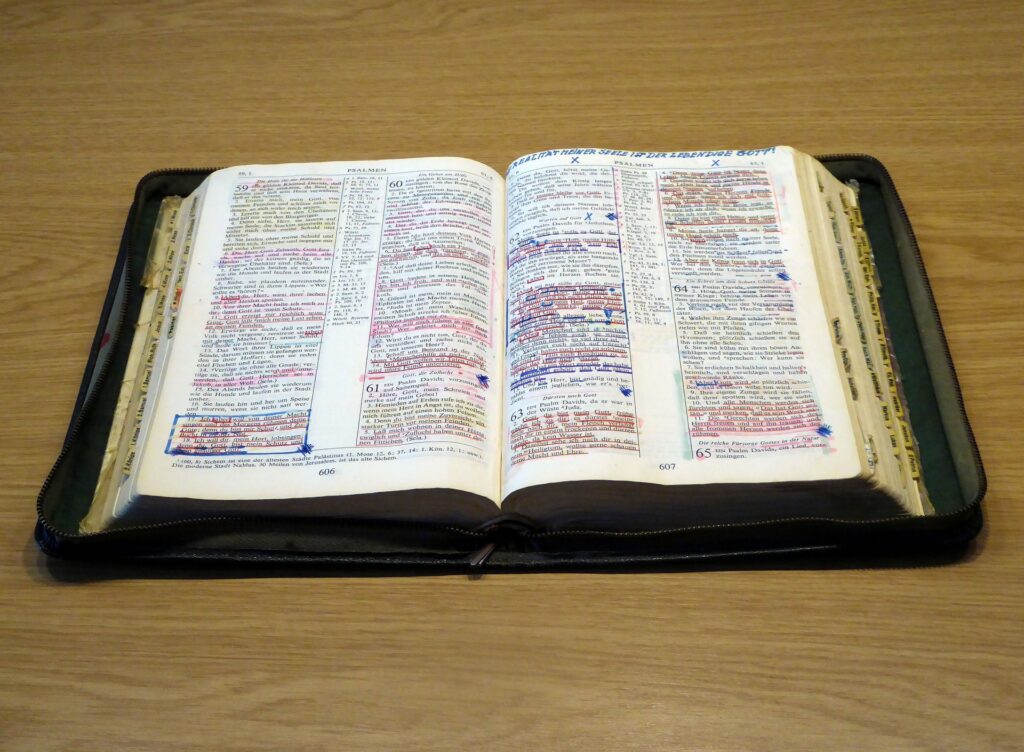
The Woman at the Well (John 4:1-45)
Jesus baptized no one. Why might Jesus not have been active in the actual baptizing? Can you think of anyone else who didn’t baptize many people?
What does Jesus’ willingness to pass through Samaria tell us?
If Jesus were really God, how could he get weary from his journey?
When was the sixth hour?
Why would Jesus want a drink of water?
What is surprising about Jesus’ asking a Samaritan woman for a drink?
Why did the Jews have no dealings with the Samaritans?
“If you knew the gift of God, and who it is that is saying to you, ‘Give me a drink,’ you would have asked him, and he would have given you living water.” What is the gift of God? What is the “living water” of which Jesus spoke? How could Jesus give this Samaritan woman “living water?”
Why was the Samaritan woman so amazed by Jesus’ statement?
How will the one who drinks the water Jesus gives never become thirsty again?
How will the living water become “a spring of water welling up to eternal life?”
Why did the woman say she wanted the water Jesus offered her? Does her statement show that she didn’t fully understand what Jesus was saying? Why did she not understand?
If Jesus knew this woman had no husband, why did he tell her to go get her husband? What reputation do you think this woman might have had in town? What was wrong with this woman’s having had so many husbands and living with a man who was not her husband? What are some of the reasons marriage is held in such low esteem in our culture? What can Christians do to demonstrate the value of marriage?
How could the woman perceive Jesus was a prophet?
Why would the woman automatically turn the discussion to spiritual questions?
What difference did the place one worshipped matter? What did the Samaritans worship on Mount Gerizim (“this mountain”)? Why did the Jews worship in Jerusalem?
Why was the hour coming when people would worship the Father neither on Mount Gerizim nor in Jerusalem?
How did the Samaritans worship what they did not know? How could they have worshiped what they knew? Is there a danger that we might worship what we do not know? How can we keep from doing so?
How did the Jews worship what they did know?
In what way(s) is salvation from the Jews?
“The hour is coming, and is now here, when the true worshipers will worship the Father in spirit and truth, for the Father is seeking such people to worship him. God is spirit, and those who worship him must worship in spirit and truth.” Jesus mentioned “true worshipers.” Is it possible, therefore, to be a “false worshiper.” What is the difference between false and true worshipers? Why do some worship falsely? What causes them to worship falsely? How can we keep from worshiping falsely? How does one worship the Father in spirit and in truth? What does God’s being a spirit have to do with the way we worship?
What do you think might have gone through this woman’s mind when Jesus said he was the Christ?
Why would the disciples marvel that Jesus was talking with a woman? What might this tell us about their prejudices? Are there people to whom we ought not speak? Why or why not?
What does the woman’s forgetting her water jar tell us about her excitement? Why would she have been so excited?
What might the townspeople have thought when this woman came and started telling that she had met the Christ?
How was Jesus’ food to do the will of his Father?
Are the fields still white for harvest? How are the fields white for harvest? How can we best go about harvesting the fields?
Why did many Samaritans believe? Can many believe through us? How can we help people come to believe in Jesus?
What was radical about the Samaritans’ asking Jesus to stay with them?
What is the connection between the word of Jesus and faith?
Why is a prophet of no honor in his hometown?
What all had Jesus done in Jerusalem at the feast?





